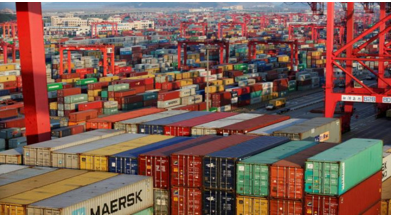INP-WealthPk
Moaaz Manzoor
The Senate Standing Committee on Commerce has hailed the Economic Coordination Committee’s (ECC) approval of the revised Barter Trade Framework SRO 642(1)/2023, describing it as a significant milestone toward expanding regional trade through a more transparent and facilitative system.

The committee meeting, chaired by Senator Anusha Rahman, was told that the new framework was finalized after extensive consultations with all key stakeholders, including the Ministries of Foreign Affairs, Finance and Revenue, the State Bank of Pakistan, and the Federal Board of Revenue. According to Federal Secretary of Commerce Jawad Paul, the amendment extends the settlement period for barter transactions from 90 to 120 days, replaces the previous “import followed by export” clause with a simplified “imports/exports” principle, and aligns the list of tradable goods with the Import and Export Policy Orders (2022).
It also harmonizes the definition of sanctioned entities with notifications issued by the Ministry of Foreign Affairs to ensure compliance with Pakistan’s international obligations. The Ministry of Commerce and the Quetta Chamber of Commerce and Industry (QCCI) commended the committee’s role in finalizing the draft for ECC approval. Officials said the revised framework is expected to resolve procedural ambiguities, improve documentation, and enable smoother cross-border exchanges with Iran, Afghanistan, and Russia — signaling a policy shift toward pragmatic trade facilitation.
The committee also reviewed progress on the planned reopening of the Badini border with Afghanistan, a move aimed at enhancing regional trade and connectivity. Following an inter-ministerial consensus on September 29, 2025, the Ministry of Commerce formally requested the Ministry of Foreign Affairs on October 2 to engage Kabul for diplomatic coordination on the border’s operationalization. Once approved, the Customs Collectorate Quetta would require about three months to deploy staff and complete necessary infrastructure, including roads, electricity, and accommodation facilities.
Coordination with the Government of Balochistan is underway to ensure that all departments, including Customs and the FIA, are stationed on-site. In addition, the committee deliberated on a revised policy framework for registering foreign business chambers in Pakistan and recommended simplifying procedures, especially for countries such as China, where language and documentation requirements can be a barrier. The Ministry of Commerce also presented a five-year breakdown of salaries paid to CEOs of State-Owned Enterprises (SOEs) under its control.
Senators stressed the need for greater transparency, performance-linked remuneration, and a uniform compensation policy across all SOEs. The meeting was attended by Senators Sarmad Ali, Amir Waliuddin Chishti, Bilal Ahmed Khan, and Muhammad Tallal Badar, along with senior officials from the relevant ministries and departments.
Credit: INP-WealthPk









